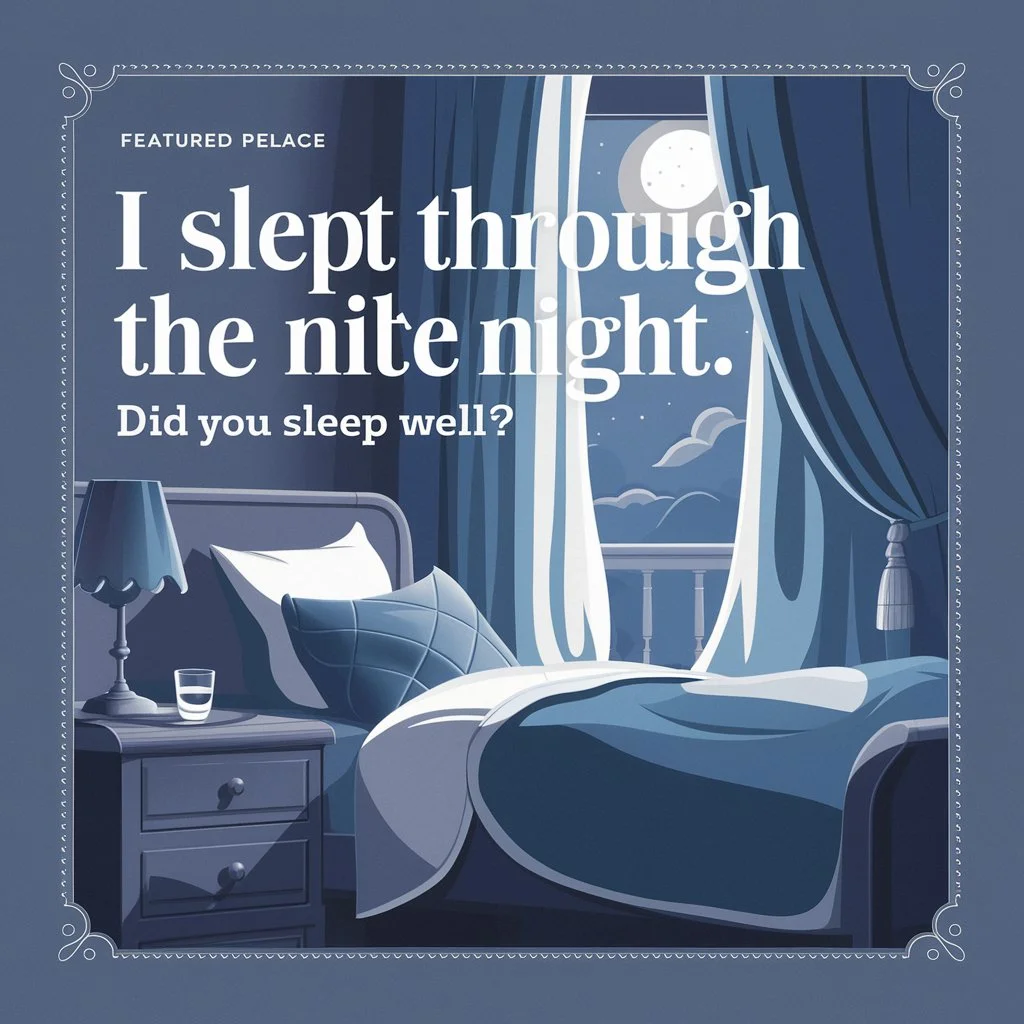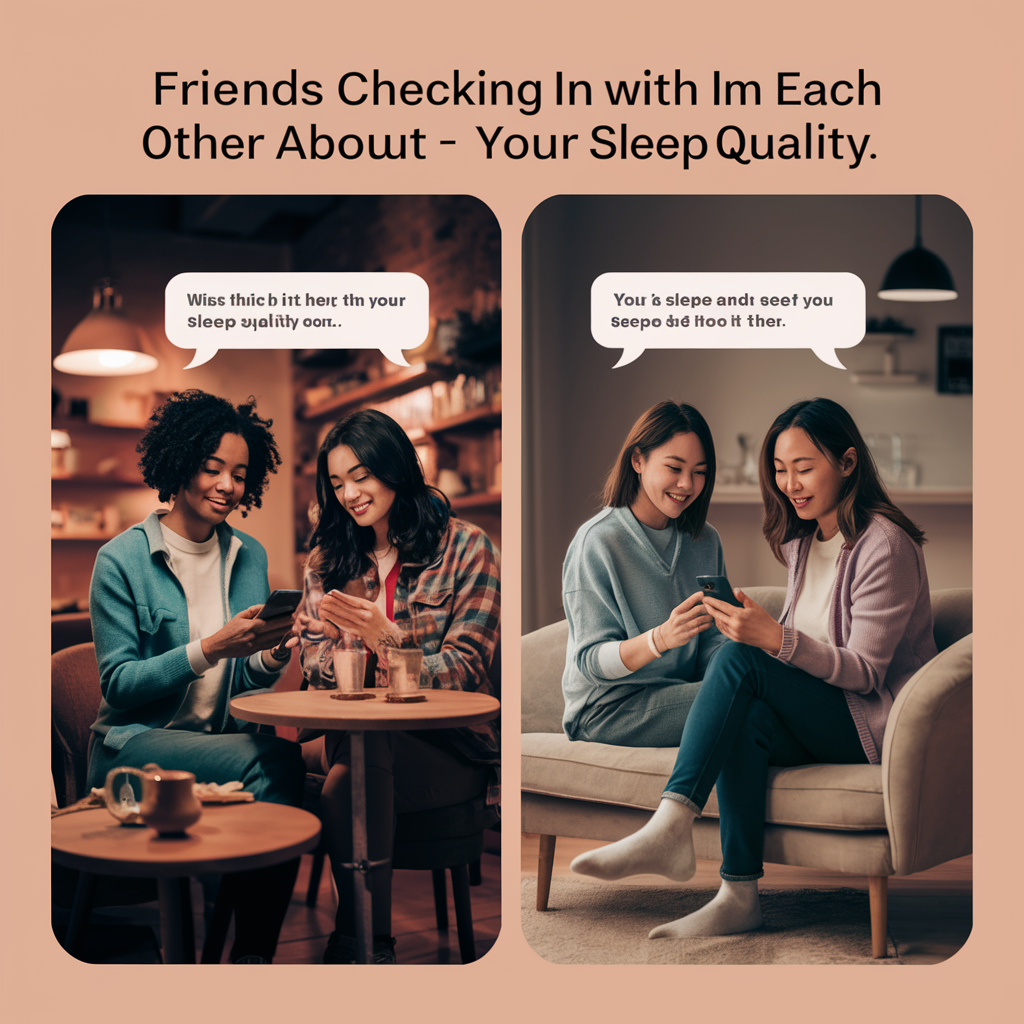Last updated on July 18th, 2024 at 09:47 am
When someone tells you that you did a good job, it’s a gratifying experience.
Acknowledging and responding to such compliments with creativity and sincerity can foster better communication, show appreciation, and build stronger relationships.
Here, we explore 30 creative replies to the compliment “Good job,” each uniquely tailored to different contexts and personalities.
I Slept Like a Baby. What About You?

Receiving a compliment such as “I slept like a baby” can be seen as a way to connect on a personal level.
Here’s how you can respond:
“I slept like a baby. What about you?”
Explanation:
Expressing that you “slept like a baby” implies a deep and restful sleep. When someone shares this with you, it opens the door for you to engage and reciprocate with your own experiences.
Conversational Example:
Person A:
“I slept like a baby. What about you?”
Person B:
“That’s great! I didn’t get much sleep, but I’m ready to tackle the day.”
This response not only acknowledges the person’s good sleep but also shares your own situation, fostering a deeper conversation.
I Didn’t Get Much Sleep, But I’m Ready to Tackle the Day. How About You?
Sometimes, despite not getting enough rest, maintaining a positive attitude can be crucial. Responding to such a statement can show empathy and support.
“I didn’t get much sleep, but I’m ready to tackle the day. How about you?”
Explanation:
This response highlights a sense of determination and resilience, acknowledging the lack of sleep but emphasizing readiness to face the day’s challenges.
Conversational Example:
Person A: “I didn’t get much sleep, but I’m ready to tackle the day. How about you?”
Person B: “I actually slept like a baby! Let’s make the most of today together.”
By responding positively, you can boost morale and show that you’re in this together.
I Slept Okay, Though I Woke Up a Few Times. How Was Your Night?
Admitting a less-than-perfect sleep can lead to a more honest and empathetic exchange.
“I slept okay, though I woke up a few times. How was your night?”
Explanation:
Sharing that your sleep was interrupted invites empathy and understanding from the other person, making the conversation more authentic.
Conversational Example:
Person A: “I slept okay, though I woke up a few times. How was your night?” Person B: “I had a restful night. Maybe tonight will be better for you!”
Such exchanges build a supportive dialogue, showing that you care about each other’s well-being.
Like a Rock! How Did You Sleep?

Comparing sleep to the stillness of a rock can vividly convey a deep, uninterrupted rest.
“Like a rock! How did you sleep?”
Explanation:
This expression is often used to describe a very deep and undisturbed sleep, suggesting you felt secure and completely rested.
Conversational Example:
Person A: “Like a rock! How did you sleep?” Person B: “I slept okay, though I woke up a few times. Maybe tonight will be better.”
This way, you can share your own experience while engaging the other person to talk about theirs.
I Had a Restful Night. How Was Your Sleep?
Describing a night as restful indicates a peaceful and rejuvenating sleep.
“I had a restful night. How was your sleep?”
Explanation:
This phrase implies you woke up feeling refreshed and ready for the day, setting a positive tone for the conversation.
Conversational Example:
Person A: “I had a restful night. How was your sleep?” Person B: “I didn’t get much sleep, but I’m ready to tackle the day.”
Responding in this manner shows you care about how the other person feels and sets a collaborative mood for the day.
I Was Out Like a Light. How Was Your Night?
Using the phrase “out like a light” vividly conveys that you fell asleep quickly and stayed asleep soundly.
“I was out like a light. How was your night?”
Explanation:
This expression captures the quick transition to deep sleep, emphasizing the quality of rest you experienced.
Conversational Example:
Person A: “I was out like a light. How was your night?” Person B: “I had a restful night. How was your sleep?”
Such a response encourages sharing and sets a relaxed, friendly tone.
I Got a Solid Eight Hours. How About You?

Specifying the amount of sleep can provide a clear picture of your night’s rest.
“I got a solid eight hours. How about you?”
Explanation:
Mentioning “eight hours” suggests you had a full, healthy sleep, which is often recommended for optimal well-being.
Conversational Example:
Person A: “I got a solid eight hours. How about you?” Person B: “I didn’t get much sleep, but I’m ready to tackle the day.”
This invites a comparative response, encouraging an exchange about sleep habits and readiness for the day.
My Sleep Was Fantastic! Did You Sleep Well?
Describing your sleep as “fantastic” conveys enthusiasm and positivity.
“My sleep was fantastic! Did you sleep well?”
Explanation:
This response not only shares your positive experience but also prompts the other person to reflect on their own sleep.
Conversational Example:
Person A: “My sleep was fantastic! Did you sleep well?” Person B: “I slept okay, though I woke up a few times. How about you?”
Such conversations can foster a positive start to interactions and encourage mutual sharing.
I Had the Best Sleep in Weeks. How Did You Sleep?
Highlighting the quality of your sleep over a period can emphasize a particularly good night.
“I had the best sleep in weeks. How did you sleep?”
Explanation:
This statement indicates a marked improvement, inviting empathy or shared joy from the listener.
Conversational Example:
Person A: “I had the best sleep in weeks. How did you sleep?” Person B: “Like a rock! How did you sleep?”
This creates a conversation around sleep patterns and experiences, promoting a deeper connection.
I Slept Soundly. What About You?

Describing sleep as “soundly” conveys a peaceful and uninterrupted rest.
“I slept soundly. What about you?”
Explanation:
This phrase suggests a high-quality sleep experience, setting a positive tone for further conversation.
Conversational Example:
Person A: “I slept soundly. What about you?” Person B: “I had a restful night. How was your sleep?”
Such an exchange promotes a supportive and engaging dialogue.
I Woke Up Refreshed. How Was Your Night?
Waking up refreshed indicates a revitalizing sleep.
“I woke up refreshed. How was your night?”
Explanation:
This response emphasizes the restorative quality of your sleep, inviting the other person to share their experience.
Conversational Example:
Person A: “I woke up refreshed. How was your night?” Person B: “I didn’t get much sleep, but I’m ready to tackle the day.”
By sharing in this way, you create a positive atmosphere and encourage mutual sharing.
I Had a Few Dreams. How Was Your Sleep?
Mentioning dreams can make the conversation more interesting and personal.
“I had a few dreams. How was your sleep?”
Explanation:
This statement invites a deeper conversation about sleep quality and the content of dreams, making it more engaging.
Conversational Example:
Person A: “I had a few dreams. How was your sleep?” Person B: “I had a restful night. Did you have any interesting dreams?”
This can lead to a fascinating exchange about dream experiences and interpretations.
I Slept Through the Night. Did You Sleep Well?

Indicating uninterrupted sleep suggests a peaceful night.
“I slept through the night. Did you sleep well?”
Explanation:
This response conveys a solid rest without disturbances, inviting the other person to reflect on their own sleep quality.
Conversational Example:
Person A: “I slept through the night. Did you sleep well?” Person B: “I slept like a baby. What about you?”
Such exchanges can create a positive and supportive dialogue about rest and well-being.
I Had a Peaceful Night. How Did You Sleep?
Describing a peaceful night implies a tranquil and undisturbed rest.
“I had a peaceful night. How did you sleep?”
Explanation:
This phrase sets a serene and calm tone, encouraging the other person to share their own sleep experience.
Conversational Example:
Person A: “I had a peaceful night. How did you sleep?” Person B: “I had a restful night. How was your sleep?”
This kind of response promotes a soothing and supportive conversation.
I Slept Like a Log. What About You?
Using the metaphor of sleeping like a log conveys a deep and immovable rest.
“I slept like a log. What about you?”
Explanation:
This phrase vividly describes a very deep and uninterrupted sleep, inviting a similar or contrasting experience from the listener.
Conversational Example:
Person A: “I slept like a log. What about you?” Person B: “I slept soundly. What about you?”
Such exchanges build a shared understanding and appreciation of good rest.
I Slept Through the Night. Did You Sleep Well?

Describing sleep as being “knocked out” emphasizes how quickly and deeply you slept.
“I was knocked out all night. How did you sleep?”
Explanation:
This expression conveys an intense level of rest, suggesting you were very tired and slept soundly.
Conversational Example:
Person A: “I was knocked out all night. How did you sleep?” Person B: “I had the best sleep in weeks. How did you sleep?”
This kind of response fosters a lively and engaging conversation about sleep experiences.
I Got Some Good Rest. How Was Your Night?
Acknowledging good rest without specifying details can keep the conversation open-ended.
“I got some good rest. How was your night?”
Explanation:
This response is positive yet flexible, allowing the other person to steer the conversation.
Conversational Example:
Person A: “I got some good rest. How was your night?” Person B: “I woke up refreshed. How was your night?”
Such dialogues promote a supportive and engaging exchange about rest and well-being.
My Sleep Was Pretty Good. How Did You Sleep?
Describing sleep as “pretty good” sets a positive yet casual tone.
“My sleep was pretty good. How did you sleep?”
Explanation:
This phrase conveys satisfaction with your sleep, inviting the other person to share their experience.
Conversational Example:
Person A: “My sleep was pretty good. How did you sleep?” Person B: “I had a restful night. How was your sleep?”
Such responses foster a positive and supportive dialogue about sleep quality.
I Slept Alright. How Was Your Sleep?

Saying you “slept alright” can indicate average sleep, keeping the conversation light.
“I slept alright. How was your sleep?”
Explanation:
This response sets a neutral tone, allowing the other person to share their experience without feeling pressured.
Conversational Example:
Person A: “I slept alright. How was your sleep?” Person B: “I slept soundly. What about you?”
Such exchanges maintain a casual and open-ended conversation.
I Feel Well-Rested. How Did You Sleep?
Feeling well-rested indicates a rejuvenating sleep.
“I feel well-rested. How did you sleep?”
Explanation:
This phrase conveys a positive outcome from your sleep, inviting the other person to share their own experience.
Conversational Example:
Person A: “I feel well-rested. How did you sleep?” Person B: “I woke up refreshed. How was your night?”
Such responses create a positive and engaging dialogue about rest and well-being.
I Had a Deep Sleep. What About You?
Describing a deep sleep suggests a high-quality rest.
“I had a deep sleep. What about you?”
Explanation:
This response emphasizes the depth and quality of your sleep, encouraging the other person to reflect on their own experience.
Conversational Example:
Person A: “I had a deep sleep. What about you?” Person B: “I had a peaceful night. How did you sleep?”
Such exchanges foster a supportive and engaging conversation about sleep.
I Had a Quiet Night. How Was Your Sleep?

Describing a night as quiet implies a peaceful and undisturbed sleep.
“I had a quiet night. How was your sleep?”
Explanation:
This phrase sets a calm and serene tone, inviting the other person to share their own experience.
Conversational Example:
Person A: “I had a quiet night. How was your sleep?” Person B: “I slept like a baby. What about you?”
Such dialogues promote a soothing and supportive exchange about rest and well-being.
I Slept Okay. How Did You Sleep?
Admitting to okay sleep keeps the conversation light and open-ended.
“I slept okay. How did you sleep?”
Explanation:
This response sets a neutral tone, allowing the other person to share their experience without feeling pressured.
Conversational Example:
Person A: “I slept okay. How did you sleep?” Person B: “I had a restful night. How was your sleep?”
Such exchanges maintain a casual and open-ended conversation about sleep quality.
I Had a Decent Sleep. How Was Your Night?
Describing sleep as decent conveys moderate satisfaction.
“I had a decent sleep. How was your night?”
Explanation:
This response sets a positive yet modest tone, inviting the other person to share their experience.
Conversational Example:
Person A: “I had a decent sleep. How was your night?” Person B: “I woke up refreshed. How was your night?”
Such dialogues foster a positive and supportive exchange about rest and well-being.
I Got Some Quality Sleep. How Did You Sleep?

Emphasizing the quality of sleep highlights its positive aspects.
“I got some quality sleep. How did you sleep?”
Explanation:
This phrase focuses on the positive aspects of your sleep, encouraging the other person to reflect on their own experience.
Conversational Example:
Person A: “I got some quality sleep. How did you sleep?” Person B: “I slept soundly. What about you?”
Such responses create a positive and engaging dialogue about sleep quality.
I Had a Rejuvenating Sleep. How Was Your Night?
Describing sleep as rejuvenating emphasizes its restorative benefits.
“I had a rejuvenating sleep. How was your night?”
Explanation:
This response conveys a highly positive outcome from your sleep, inviting the other person to share their experience.
Conversational Example:
Person A: “I had a rejuvenating sleep. How was your night?” Person B: “I had the best sleep in weeks. How did you sleep?”
Such exchanges promote a positive and engaging conversation about rest and well-being.
I Slept Peacefully. How Was Your Sleep?
Describing a peaceful sleep implies a tranquil and undisturbed rest.
“I slept peacefully. How was your sleep?”
Explanation:
This phrase sets a serene and calm tone, encouraging the other person to share their own experience.
Conversational Example:
Person A: “I slept peacefully. How was your sleep?” Person B: “I had a restful night. How was your sleep?”
Such dialogues foster a supportive and engaging exchange about sleep.
I Had an Uninterrupted Sleep. How Did You Sleep?

Highlighting uninterrupted sleep suggests a high-quality rest.
“I had an uninterrupted sleep. How did you sleep?”
Explanation:
This response emphasizes the lack of disturbances, suggesting a very restful night.
Conversational Example:
Person A: “I had an uninterrupted sleep. How did you sleep?” Person B: “I slept like a baby. What about you?”
Such exchanges promote a positive and supportive dialogue about rest and well-being.
I Feel Recharged. How Was Your Night?
Feeling recharged indicates a revitalizing sleep.
“I feel recharged. How was your night?”
Explanation:
This phrase conveys a positive outcome from your sleep, encouraging the other person to share their own experience.
Conversational Example:
Person A: “I feel recharged. How was your night?” Person B: “I woke up refreshed. How was your night?”
Such responses create a positive and engaging dialogue about rest and well-being.
I Slept Great. Did You Sleep Well?
Describing sleep as great conveys enthusiasm and satisfaction.
“I slept great. Did you sleep well?”
Explanation:
This response not only shares your positive experience but also prompts the other person to reflect on their own sleep.
Conversational Example:
Person A: “I slept great. Did you sleep well?” Person B: “I slept okay, though I woke up a few times. How about you?”
Such conversations can foster a positive start to interactions and encourage mutual sharing.
Conclusion
Responding creatively to compliments about your sleep can enrich conversations and foster stronger connections. By tailoring your responses to suit the context and your relationship with the person, you can create more engaging and meaningful interactions.
Whether you slept like a baby or woke up refreshed, sharing these experiences with others can open up deeper conversations and build a supportive environment.
Remember, the key is to be sincere, empathetic, and positive, making every exchange a step towards better communication and understanding.

James Wilson is the creative mind behind ReplySwift.com. With a talent for crafting quick and clever responses, James helps others communicate more effectively. On ReplySwift.com, he shares tips, templates, and insights to make every reply impactful and engaging. Join James and elevate your response game to new heights.












